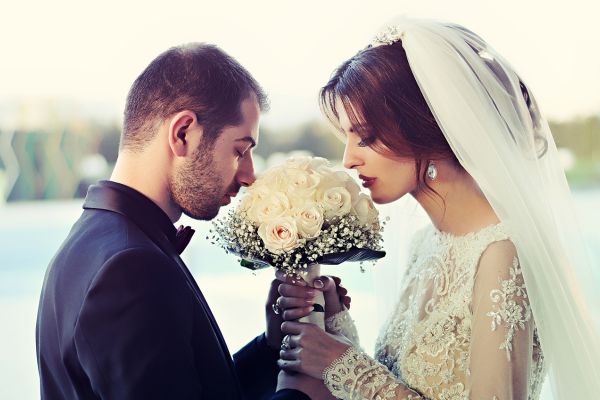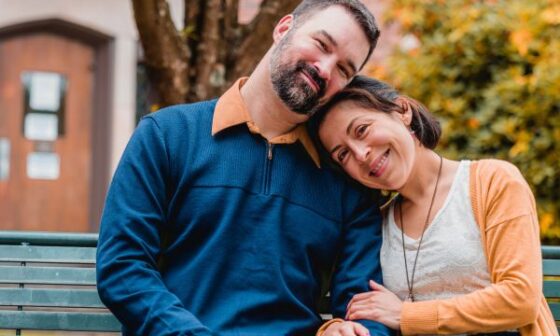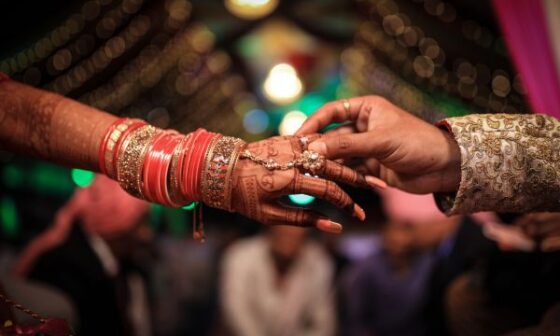The delicate dance of two souls uniting in matrimony is a momentous occasion celebrated across cultures and societies. A wedding ceremony symbolizes not only the love between partners but also the beginning of a shared life journey. At the heart of this celebration is the officiant, the individual who conducts and solemnizes the union. This article delves into the realm of marriage officiants, exploring the various individuals and authorities who hold the privilege to join couples in wedded bliss.
Who Is Allowed To Marry Couples
Marriage, a timeless union between two individuals, is a significant milestone in life. But have you ever wondered who has the authority to legally unite couples in matrimony? The answer goes beyond the traditional image of a priest or a judge, as various individuals are permitted to officiate weddings under distinct circumstances. This article dives into the realm of marriage officiants, shedding light on the diverse array of individuals who play this crucial role.
Legal Requirements for Officiating Weddings
In the intricate tapestry of marriage laws, different jurisdictions weave their own set of rules governing who can officiate a wedding. Ordained ministers and religious officials, empowered by their faith and recognized by the state, hold the authority to perform ceremonies. In parallel, civil ceremonies presided over by justices of the peace provide an alternative avenue for couples seeking a secular union.
Role of Clergy Members
Religious ceremonies steeped in tradition often see clergy members as officiants. Denominational differences add color to these unions, with each faith bringing its own rituals and customs to the altar. Beyond the ceremony itself, clergy may also play a vital role in preparing couples for the marital journey, offering guidance and counseling.
Civil Authorities and Magistrates
The realm of civil marriages finds its torchbearers in the form of civil authorities and magistrates. These officials, backed by legal mandate, ensure that unions are recognized by the state. A civil ceremony, while often less adorned than its religious counterpart, offers a simplicity and legal validity that resonates with many couples.
Friend or Family Member Officiants
In recent times, a trend toward personalized ceremonies has emerged, bringing friends and family members into the fold as officiants. The allure of having a loved one preside over the ceremony adds an intimate touch. With the advent of online ordination, the process has become more accessible, allowing individuals to take on this role for a day.
Cultural and Community Leaders
Diverse cultures and communities infuse weddings with their unique flavors. Tribal leaders, elders, and community figures often find themselves at the helm of culturally rich ceremonies. These leaders bridge the past and present, honoring traditions while celebrating the love between two individuals.
Humanist Celebrants
For couples who eschew religious affiliations, humanist celebrants step onto the stage. These officiants craft ceremonies that align with the couple’s ethical and philosophical beliefs. Rooted in values, rather than doctrine, humanist ceremonies weave a tapestry of meaningful moments.
Legal Responsibilities and Documentation
An officiant’s role transcends the mere act of conducting a ceremony. Ensuring that all legal requirements are met, from filing marriage licenses to signing certificates, is a critical responsibility. Any oversight in this realm could cast a shadow on the newlyweds’ happiness.
Creating Meaningful Ceremonies
The canvas of a wedding ceremony is vast, allowing officiants to paint a portrait of the couple’s unique bond. Crafting a ceremony script that captures their journey and values infuses the event with a sense of authenticity. Rituals, readings, and symbolism add depth, ensuring a ceremony that resonates deeply.
Officiant Fees and Etiquette
The question of officiant fees and etiquette delicately dances in the background. While it’s not a topic that holds the limelight, open communication between couples and officiants is crucial. Finding a balance between professional services and personal connections ensures a harmonious collaboration.
Challenges and Rewards of Officiating
The path of an officiant is not without its challenges. Calming jittery nerves, managing unexpected hiccups, and ensuring a seamless ceremony demand skill and grace. Yet, the privilege of uniting couples in marriage is a rewarding endeavor that leaves a mark on the officiant’s own journey.
Training and Certification
Becoming an officiant is a journey of growth and learning. Various training programs and resources equip individuals with the knowledge and skills needed to conduct memorable ceremonies. Seeking certification adds a layer of professionalism and can enhance an officiant’s credibility.
Legal Changes and Trends
Marriage laws, like the tides, shift over time. The officiant landscape has adapted to societal changes, welcoming same-sex marriages and embracing inclusivity. Officiants must stay attuned to these shifts to ensure that their ceremonies reflect the evolving tapestry of love.
Tips for a Memorable Ceremony
Crafting a memorable ceremony requires attention to detail and a sprinkle of magic. Creating an inviting atmosphere, engaging the audience, and leaving an indelible mark on the couple and attendees define a successful officiant’s touch.
Conclusion
As couples traverse the delicate bridge into matrimony, officiants stand as guides, witnesses, and creators of timeless memories. Whether religious or secular, traditional or progressive, the act of joining two lives is a sacred privilege granted to a diverse array of individuals. In a world where love knows no bounds, officiants continue to play a pivotal role in celebrating unity and forging futures.
FAQs (Frequently Asked Questions)
1. Can anyone officiate a wedding ceremony?
Yes, depending on the jurisdiction and the type of ceremony. Ordained ministers, civil authorities, and even friends or family members can officiate weddings.
2. Do I need to be religious to be an officiant?
No, many couples opt for non-religious or humanist officiants who align with their values rather than religious beliefs.
3. What are the legal responsibilities of an officiant?
Officiants are responsible for ensuring all legal requirements, such as filing marriage licenses, are met to ensure the marriage’s legality.







